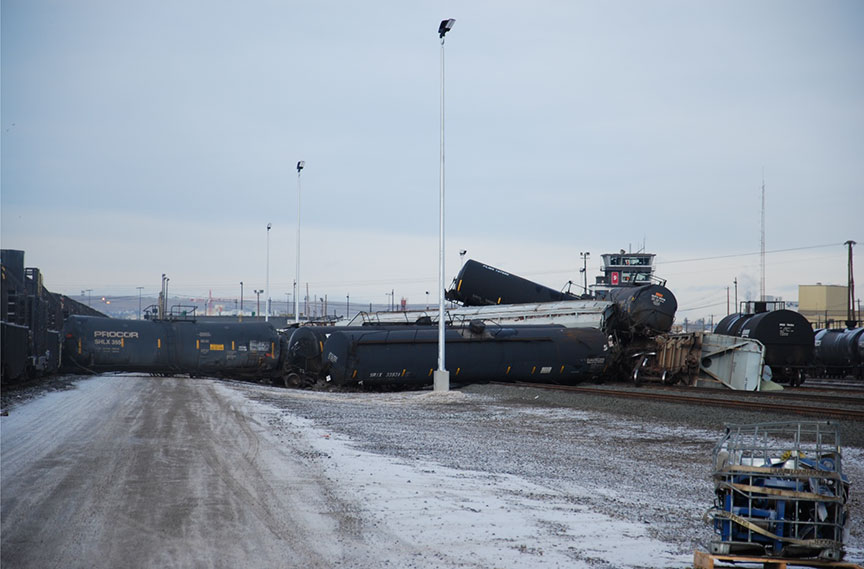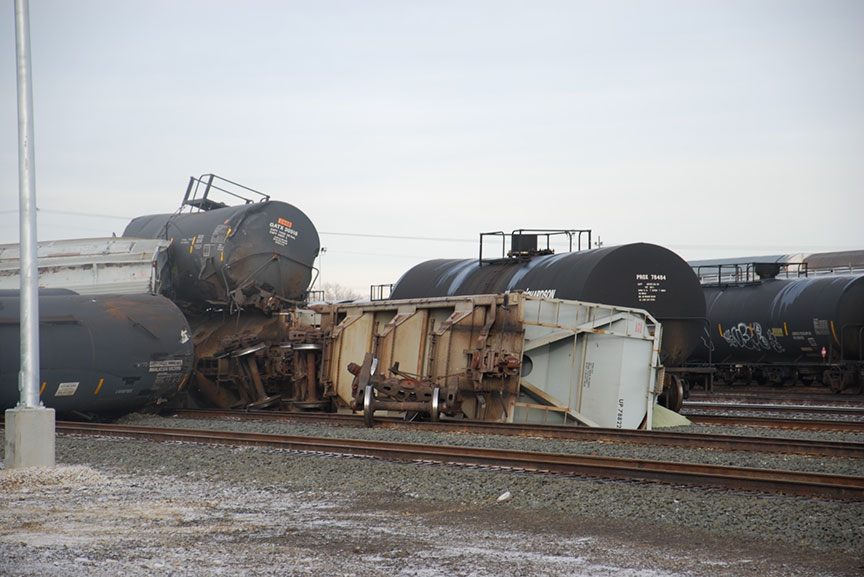Non–main-track collision and derailment
Canadian Pacific Railway
Yard Assignment CW11-06
Alyth Classification Yard
Calgary, Alberta
The occurrence
On , at approximately 0655 Mountain Standard Time, the crew of Canadian Pacific Railway Yard Assignment CW11-06 was switching cars eastward into the classification tracks at Alyth C-Yard in Calgary, Alberta, when 56 cars disconnected from the movement and ran uncontrolled down the lead track into the designated emergency track, contacting a cut of stationary loaded hopper cars. As a result of the collision, a total of 22 cars derailed. No injuries were reported. A small amount of fertilizer pellets was spilled and later recovered. The product was non-regulated and posed no threat to the environment.
Safety Communications
Safety advisory letter
Rail Safety Advisory letter 01/20: Inclusions and porosity in a coupler knuckle
Media materials
News release
Failure of a rail car coupler led to 2019 rail yard collision and derailment in Calgary, Alberta
Read the news release
Deployment notice
TSB deploys an investigator to the site of a train derailment in Calgary, Alberta
The Transportation Safety Board of Canada (TSB) is deploying an investigator to the site of a Canadian Pacific train derailment at Alyth Yard in Calgary, Alberta. The TSB will gather information and assess the occurrence.
Investigation information
Download high-resolution photos from the TSB Flickr page.
Class of investigation
This is a class 3 investigation. These investigations analyze a small number of safety issues, and may result in recommendations. Class 3 investigations are generally completed within 450 days. For more information, see the Policy on Occurrence Classification.
TSB investigation process
There are 3 phases to a TSB investigation
- Field phase: a team of investigators examines the occurrence site and wreckage, interviews witnesses and collects pertinent information.
- Examination and analysis phase: the TSB reviews pertinent records, tests components of the wreckage in the lab, determines the sequence of events and identifies safety deficiencies. When safety deficiencies are suspected or confirmed, the TSB advises the appropriate authority without waiting until publication of the final report.
- Report phase: a confidential draft report is approved by the Board and sent to persons and corporations who are directly concerned by the report. They then have the opportunity to dispute or correct information they believe to be incorrect. The Board considers all representations before approving the final report, which is subsequently released to the public.
For more information, see our Investigation process page.
The TSB is an independent agency that investigates air, marine, pipeline, and rail transportation occurrences. Its sole aim is the advancement of transportation safety. It is not the function of the Board to assign fault or determine civil or criminal liability.

